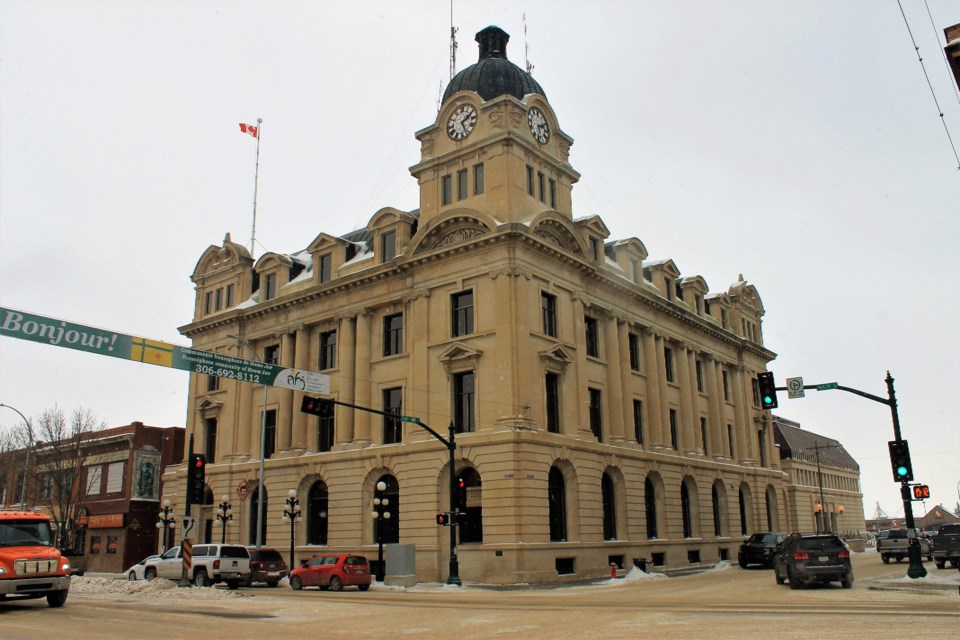City manager Jim Puffalt believes a second safety officer is required to help decrease accidents among municipal employees and potentially get Moose Jaw off a Workers’ Compensation Board (WCB) “watch list.”
In March 2018, the Ministry of Labour Relations and Workplace Safety deemed the City of Moose Jaw a “priority employer” and mandated that the municipality decrease its overall injuries by 25 per cent, a city council report explained. In response, city hall created compliance improvement action plans to identify and reinforce safety responsibilities.
During a recent budget deliberation meeting, Puffalt pitched adding a second safety officer position on a two-year trial basis to reduce motor vehicle incidents by 50 per cent to 150 occurrences. The position would cost $58,000, but with benefits, vehicle allowance, and phone, it would increase to $75,500.
Puffalt claimed adding this position would not increase the mill rate.
Council, however, was skeptical about the position, its cost, and the two-year trial period, so it amended the motion to be a one-year trial period. Council then voted 4-3 to approve the recommendation, with Mayor Fraser Tolmie and councillors Kim Robinson, Crystal Froese and Doug Blanc in favour and councillors Jamey Logan, Heather Eby and Dawn Luhning opposed.
Logan attempted to table the motion, but council voted 4-3 against that idea, with Tolmie, Logan and Blanc in favour and Robinson, Froese, Eby and Luhning opposed.
Council discussion
Several councillors expressed surprise that Moose Jaw was on a WCB watch list and remarked that they didn’t recall seeing a report or any red flags about it.
“It’s been prevalent since I’ve been here (in 2018),” said Puffalt. “While we have done good work on driving our numbers down, they’re still too high ... . That has affected our WCB costs.”
Reports about accidents and damages don’t normally come to city council since many are preventable and city hall attempts to handle them, he continued. A second safety officer could deal with up to 2,569.5 hours per year of safety-related issues.
While this role is important, there are out-of-pocket costs for the position and only speculation about how much money could be saved, said Logan. He didn’t think council could afford this now.
Eby was also taken aback by the news about the watch list.
“I just feel like Mr. (Al) Bromley (human resources director) has given us good news many times saying … we’ve done so good with WCB,” she said. “Boy, I feel like I slept through something because I was under the impression that we were (doing well). This is totally a shock to me that we’re on a WCB watch list.”
While Froese suggested city administration could provide quarterly reports about the second safety officer’s work, Blanc said there should be ongoing evaluations every three months, so council knows more by the end of the year.
Need for position
City hall has insufficient resources to reach the highest safety compliance levels or minimize preventable accidents, Puffalt said. This results in increased out-of-pocket expenses for repairs, reduced WCB merit rebate awards and increased WCB rates, as well as time and expenses lost to investigating accidents.
A second safety officer would generate direct and indirect funds through such activities as helping reduce expenses, WCB premiums, and sick time, to cover the position’s cost and fill a gap in service.
The proposed position could save $125,000 by reducing injuries and motor vehicle accidents or property damage, said Puffalt. The safety officer could also reduce by half how much time the safety supervisor, employees, managers, directors and city manager spend investigating accidents — more than 1,000 hours per year — and allegedly save $52,500 in productivity costs.
“We are spending more time on reacting to incidents that occur, instead of training upfront … creating the safe work procedures and holding people accountable … ,” he added. “We want to ensure everyone goes home safe at the end of the day.”


.png;w=120;h=80;mode=crop)

